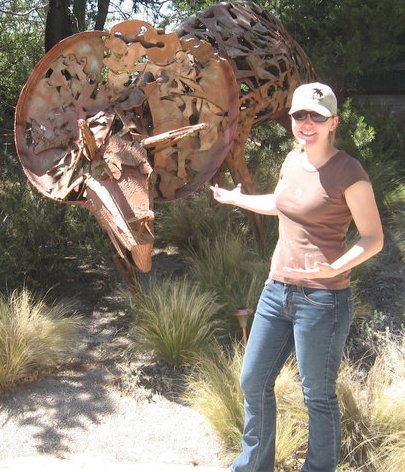I love rules. That is to say, I hate them, which is why I love to break them.
There are a slew of biological "rules" that people such as myself love to hate. I put rules in parentheses because, in reality, a lot of these patterns we observe in nature have so many exceptions that I am reluctant to use that word. But for the sake of argument and typing, I'll go ahead and use it here.
My favorite among these is something called Bergmann's Rule. The rule originally stated that species within a genera tend to exhibit an inverse relationship between body size and climatic temperature. Said anther way, big things are found in cold places, small things are found in hot places.
But first. Why do we care? I'll tell you. It turns out that body size places physical constraints on a lot of ecological and physiological properties of organisms. Since I study mammals, that's what we'll focus on here. Gestation time, body size predicts that. Digestive tract length. Home range size. Metabolism. Trophic interactions. All related to body size. Body size can also be estimated from fossil material, allowing us to go back in time and interpolate all sorts of cool stuff about animals we can't observe, which is something I like to do. SO. Asking what controls or influences body size is one of those "big questions" in biology. Which brings us to Bergmann's Rule.
Okay. We're comparing species within a genera across a temperature gradient. Easy.
NOT SO FAST!
This rule has problems from the get go, before we can even start critically analyzing it. It turns out that most studies examining Bergmann's Rule use latitude as a proxy for temperature. I'm not really sure why. Maybe it's because taking a thermometer outside is unreasonably difficult. Maybe it's because we don't really know what we mean by "temperature". Is it average annual temperature, minimum seasonal temperature, something else? Latitude is correlated with a bunch of these temperature variables, so maybe we're good? Close enough? Okay, again for the sake of argument, sure. Moving on.
It turns out, however, that most studies have taken the original concept of comparing species within a genus and instead compare populations of individuals within the range of a species. So before I've even started my critical analysis of this so called rule, all the data and studies that have been used to address it in the past fail to conform to the central tenets of the rule.
It's no small wonder, then, that every paper published on this dammed "rule" over the last few decades has come up with a different answer as to "how many things conform to Bergmann's Rule?" 30-50% of mammals? Unless you are an animal that burrows. Oh, and if you're a carnivore it's not such a great rule either.
This is problematic for a graduate student such as myself trying to understand "basic ecology". One of the things we strive for in science is consensus. The inability to reproduce what someone else has done because "we don't know how to define the problem" or because an analysis "lacks the statistical power to reject the null hypothesis" is, for lack of a better word, dumb.
Furthermore, why? Let's say, again for the sake of argument, that most mammals do follow the rule. Okay. What does that mean? This is perhaps my biggest problem with these rules: they have very little explanatory power. We spend all this time arguing over whether or not things follow a rule, and we don't even have a good reason for WHY it would happen in the first place. All sorts of things have been proposed: thermoregulation, productivity, competition. But, I have little faith in these explanation given that we 1. can't agree on what we're testing and 2. we can't come to a consensus on what we're observing.
Also, it happens that often the answer in biology ends up being "it depends, and it's a little of all of the above."
Not very satisfying.
















